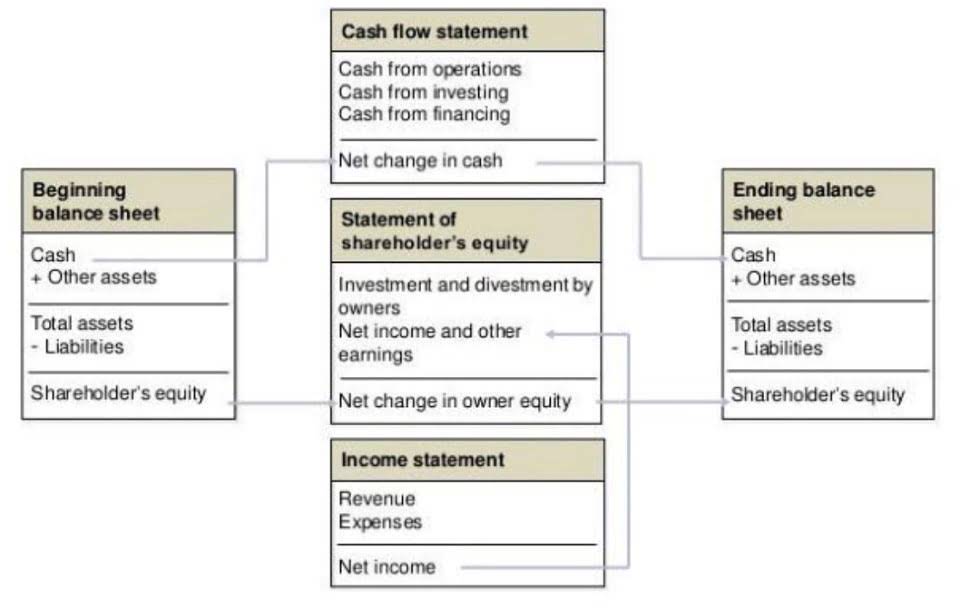Avoiding Trust Account Terrors: How to Ethically and Effectively Manage a Lawyers Trust Account Online CLE Course

An escrow account is generally used to hold funds or assets during transactions, like real estate deals, and is managed by a neutral third party. In contrast, a client trust account is specifically for holding and managing client funds related to legal services. A client trust account is like a safe haven for your client’s funds, separate from your firm’s operating accounts. It’s where you hold money on behalf of your clients, ensuring it’s used exclusively for their legal needs and expenses.
Six Essential Features in Your Legal CRM (and How to Use Them)

Even though the process is straightforward, many lawyers fail to verify their trust account balances with three-way reconciliation. Attorneys have a duty to keep very detailed records of trust account monies. Likewise, any checks issued should be immediately recorded in the check register. With its specialized features and intuitive interface, LeanLaw enables you to efficiently manage and track client funds held in trust. Assign trust and bank accounts for each client trust to retained earnings balance sheet track incoming and outgoing funds.

Master the Essentials of Trust Accounting for Law Firms

It’s essential to maintain a strong ethical culture at all levels of your firm and ensure that every team member prioritizes their fiduciary duty to clients to maintain trust accounting compliance. Successfully managing trust accounts requires a thorough understanding of the rules and regulations that govern trust accounting. As mentioned above, it’s an ethics violation to commingle funds in a trust account with the law firm’s or other clients’ money.
Common trust accounting mistakes
You should deposit any funds received on behalf of a client that aren’t immediately earned or allocated to cover expenses. This includes settlement checks, retainers, and any other advance payments. Personal or the firm’s operating funds should never be mixed with client trust account funds. In order to understand law firm trust accounting, it’s crucial to understand the distinction between client accounts and business accounts. Law firms that don’t invest in essential accounting systems and technology are at a higher risk of trust accounting failures. Manual record-keeping increases the likelihood of errors and makes it difficult to track transactions accurately.
But navigating the complexities of trust accounting can be challenging, and even small mistakes can lead to serious consequences. In an era where efficiency and compliance are paramount, the role of technology in trust accounting for lawyers cannot be overstated. By leveraging tools like RunSensible, law firms not only streamline their financial operations but also underscore their commitment to ethical practice and client service. This technological embrace, therefore, represents not just an operational upgrade but a strategic investment in the firm’s reputation and client relationships. By implementing these best practices, law firms can effectively manage client funds in a way that upholds their professional responsibilities and reinforces the trust placed in them by their clients. This not only ensures compliance with legal standards but also positions the firm as a trustworthy and reliable partner in the eyes of current and prospective clients.
- MyCase helps streamline case management and billing processes, making it easier to keep track of client funds and maintain accurate records.
- Attorneys who fail to satisfy adequate supervision and oversight of trust accounts risk disciplinary action, reputational damage, and loss of business.
- Many state bars offer resources, training, and updates to help lawyers maintain their understanding of trust accounting requirements.
- It’s common for law firms to operate one or more pooled trust accounts depending on the nature and needs of the practice.
- An effective way to prevent improper authorization for trust disbursements is to require dual signatures on trust checks over a certain amount, as well as on the bank forms needed to complete a wire transfer.
On the other hand, operational accounts are used to manage the law firm funds used for day-to-day expenses, such as salaries, rent, and utilities. These accounts typically consist of trust accounting for lawyers the firm’s own funds, including revenue generated after certain legal services are provided by the firm. That said, trust accounting for lawyers can still be a complex and intimidating part of practicing law and lead to large consequences if it’s not done correctly.
- Discover how does a trust fund work, its benefits, setup, and types; make informed estate planning and financial decisions today.
- Quite often, investigations aren’t triggered by lawyers playing fast and loose with the rules, but from the basic paper trail that is left by innocent mistakes made in management of an IOLA trust account.
- This includes maintaining a separate ledger for each client’s trust funds, recording deposits, withdrawals, and any interest earned.
- By avoiding these common pitfalls, you can ensure compliance with attorney trust account rules and maintain proper trust accounting practices.
- A client ledger is a summary of all client transactions grouped by individual clients.
- One of the core functions of a trust is to ensure that there is no commingling between client funds and the lawyer’s funds.
- By structuring a trust properly, you can potentially reduce income, estate, and gift taxes.
- While similar, a client trust account and an escrow account serve different purposes.
- This concept of holding funds in trust is based on the fiduciary duty that lawyers have towards their clients.
- When lawyers obtain a smaller sum, they can place it into a pooled trust account.
However, there’s plenty of room to optimize an attorney’s trust account process and avoid common pitfalls. Any assets transferred into the trust account belong to the client and must be managed on their behalf. Just as it would be inappropriate for an attorney to use a client’s checking account to pay for office supplies, it would be equally inappropriate to use client trust account funds for personal or firm expenses. In its most essential form, trust accounting is defined as bookkeeping for trust accounts in accordance with legal and ethical requirements. This course will focus on establishing how trust and business accounts should be organized, understanding the applicable rules, and applying them to your accounting system.

Whether it’s a lawyer overseeing client funds or an individual managing family wealth, maintaining proper trust accounts underscores fiduciary responsibility. This term refers to the obligation of a trustee (or fiduciary) to act in the best interests of the beneficiaries. Comprehensive and transparent trust accounting https://www.bookstime.com/ can prevent misunderstandings and legal issues, providing peace of mind to both trustees and beneficiaries.